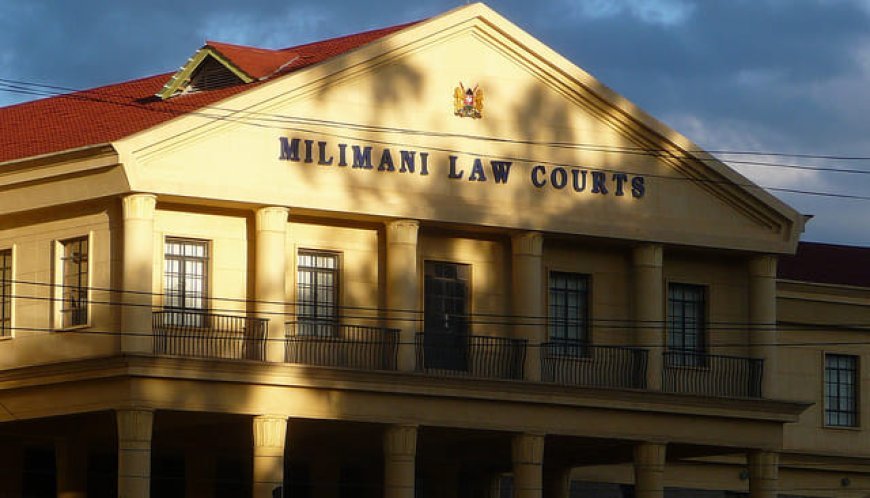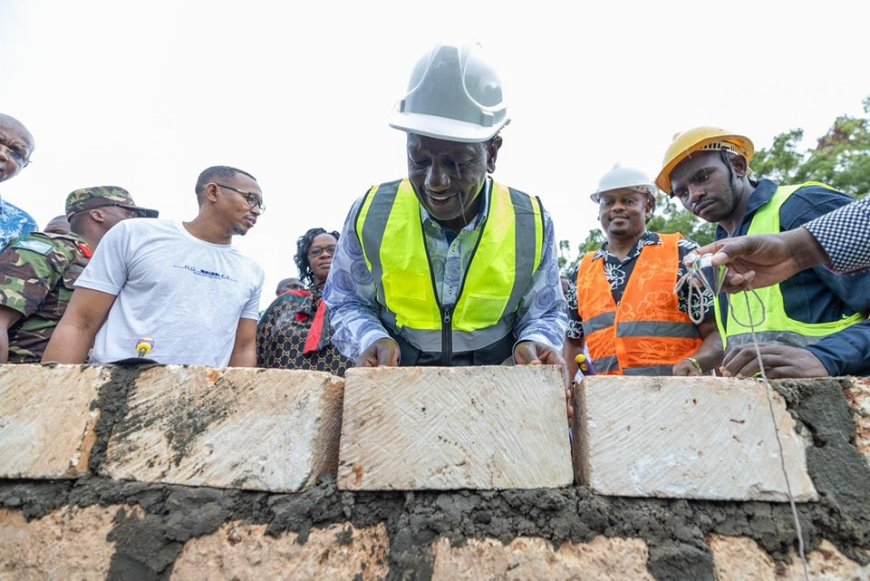Another Petition Filed Against Ruto's Housing Levy
Court filings further argue that the burden falls unfairly on salaried workers, who are already weighed down by numerous statutory deductions.

The Kenya Human Rights Commission (KHRC) and several civil society groups on Friday moved to the High Court seeking to halt President William Ruto’s affordable housing programme.
In their petition, the organisations claim the housing levy has pushed many Kenyans deeper into poverty and is being exploited as a political tool to attract support.
The coalition — made up of KHRC, Transparency International Kenya, the Institute for Social Accountability, Inuka Kenya Ni Sisi, and Siasa Place — labelled the levy as illegal, unconstitutional, and socially harmful.
Court filings further argue that the burden falls unfairly on salaried workers, who are already weighed down by numerous statutory deductions.

The Milimani Law Courts in Nairobi. /FILE
They added that since its introduction, the levy has failed to deliver on the constitutional promise of affordable housing, while excluding more than 20 million Kenyans in the informal sector.
''The Petitioner seeks the declaration of Sections 3, 4, 5, and 12 of the Act as unconstitutional, null, and void ab initio. These sections operationalise the Affordable Housing Levy (hereinafter "the Levy"), which imposes a mandatory 1.5 per cent deduction on employees' gross salaries, matched by employers, to fund the National Housing Development Fund (hereinafter "the Fund"),'' the petition read in part.
"The KHRC contends that the Levy, as structured and implemented, contravenes multiple constitutional provisions, leading to economic retrogression, politicisation of public resources, lack of transparency, unfair administrative actions, and discriminatory practices."
It is yet another attempt through legal means to stop the Ruto-backed program, which was imposing the affordable housing levy, currently at the rate of 1.5% of gross salary, on salaried Kenyans.
In October last year, the High Court ruled that the Affordable Housing Act of 2024 was properly enacted per the Constitution. Justice Olga Sewe, John Chigiti, and Josephine Mong’are ruled on Tuesday, October 22, 2024, that the Act is constitutional and that there was adequate public participation.
Six petitions challenging the housing levy, among other provisions of the Affordable Housing Act, were filed but later consolidated, including one filed by 22 senators led by Busia Senator Okiya Omtatah and seven other human rights defenders. They sought to quash the Act in its entirety.
The petitioners in the matter had specifically taken issue with a section of the new Act that sought to appoint the Commissioner General of the KRA as the collector of the affordable housing levy, and sections 4 and 5 of the Act, which impose the levy.
The judges observed that their ruling solely focused on key issues that were raised by the petitioners in regard to the Affordable Housing Act. The key issues for determination included: whether there was adequate public participation on the matter, whether Articles 27,40, and 43 of the Constitution were infringed, on whether the Act clawed back devolution.
However, KHRC in its new petition maintained that it was anchored on fresh arguments, separate from those already addressed in past court rulings.
Referring to statistics from the Kenya National Bureau of Statistics (KNBS), the petitioners highlighted that over one-third of Kenyans survive below the poverty line, with rising food prices and stagnant wages shrinking household earnings.
They further argued in their filings that the levy drains workers of the little disposable income they rely on for basic needs like food, healthcare, and education.
''Empirical evidence from the KNBS Economic Survey 2025, published in May 2025 and covering the calendar year 2024, paints a grim picture of economic inefficiency and retrogression. The construction sector, which is central to housing delivery, contracted by 0.7 per cent in 2024, a sharp reversal from the 3.0 per cent growth recorded in 2023. This downturn is attributed to elevated input costs, reduced private sector investment, and the diversion of disposable income through the Levy,'' the petition added.







